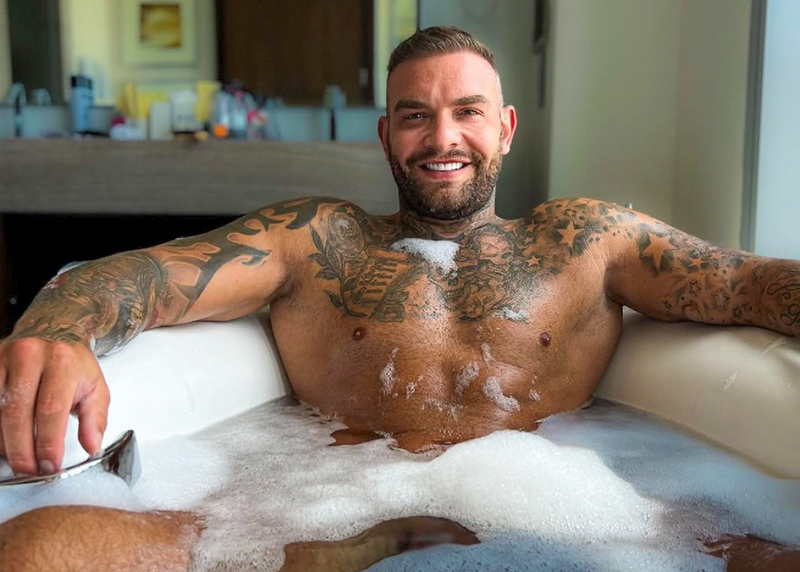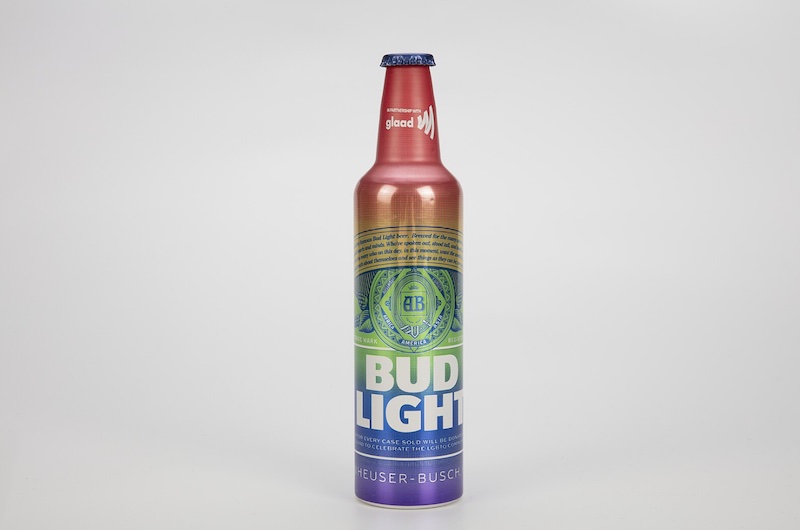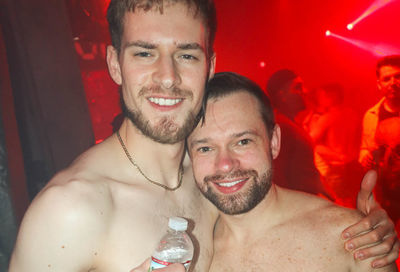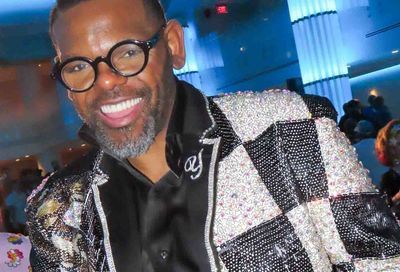Braun Razor Ad Depiction of Trans Man Sparks Outrage
Braun is receiving backlash for running a commercial in the United Kingdom showing a transgender man with surgical scars.

An electric razor commercial featuring a transgender man shaving while shirtless, with visible mastectomy scars, has enraged several anti-trans campaigners in the United Kingdom.
Critics of the ad for Braun’s Series X Hybrid Trimmers say it “glamorizes” gender-affirming surgery, which they claim is a “cosmetic” procedure, rather than a form of medically necessary care to treat gender dysphoria.
They also cite transgender visibility itself as problematic, based on the belief that transgender identity is a mental illness and can be spread via “social contagion,” or the idea that merely acknowledging the existence of transgender identity will encourage others to identify as transgender.
Chief among the objectors is Maya Forstater, the executive director of the gender-critical organization Sex Matters, who claims the ad violates guidelines set forth by the Advertising Standards Authority, which regulates advertising in the United Kingdom.
Forstater first became famous for successfully arguing that gender-critical beliefs are protected under the Equality Act after her consulting contract with a think tank was not renewed due to social media posts referring to transgender women as men and debating possible reforms to Great Britain’s Gender Recognition Act.
Speaking with the British newspaper The Telegraph, Forstater accused the company of being irresponsible for its depiction of the transgender actor.
“Promoting the removal of healthy breast tissue is not only shockingly immoral, but against advertising standards guidance to not glamorize or trivialize cosmetic surgery,” she said.
“Braun executives must have been living under a rock if they think that this campaign represents ‘inclusivity,'” Forstater added. “The reality is that Braun has now written itself into history as promoting social contagion and what will become one of the most notorious medical scandals.”
According to the Daily Mail, James Esses, the co-founder of Thoughtful Therapists, a group of psychologists concerned about the impact of “gender identity ideology” on children and young people, whose members oppose “affirmation-only” policies when it comes to recognizing transgender identity, also slammed the ad as irresponsible.
“Once again, we find a private corporation willing to glorify irreversible surgery being performed on the healthy breasts of women, in pure pursuit of profit,” he said.
A similar outcry from anti-transgender campaigners, feminists, and some breast cancer survivors occurred in response to Costa Coffee’s use of a van with a cartoon image of a person with mastectomy scars, prompting some to call for a boycott of the company.
That image, featuring an androgynous-looking character wearing long shorts and scars below each nipple, was taken from a mural designed by the coffee chain for Brighton and Hove Pride last year.
But supporters of the campaign and the idea of transgender visibility have argued that those like Forstater and Esses are simply revealing their animus towards transgender people, noting that the person depicted in the commercial is an adult — not a child.
Supporters have also noted that transgender men, due to hormone therapy, grow facial hair and are likely to shave, meaning they might be inclined to use the product in question, thereby making Braun justified in depicting a trans male in order to appeal to as many customers as possible.
“Trans men shave. Braun sells shaving products. Why the outrage? Let’s not pretend that is has anything to do with mastectomy scars. It is 100% about inclusion of trans people in the public space and is 100% transphobic,” wrote one user on X, the platform formerly known as Twitter, in response to a commenter’s prediction that Braun’s sales would decline as part of a backlash against the brand.
Trans men shave.
Braun sells shaving products.
Why the outrage?
Let’s not pretend that is has anything to do with mastectomy scars. It is 100% about inclusion of trans people in the public space and is 100% transphobic.
— WildWoods (@MrSpungoe) September 19, 2023
Replying to the same commenter, another user wrote, “Why would it worry me, it’s an advert. I barely look at them, the furore (sic) you create will have greater reach than the advertisers could have hoped for.”
Why would it worry me, it's an advert. I barely look at them, the furore you create will have greater reach than the advertisers could have hoped for
— Must be a better way than this (@ecumbriasaint) September 19, 2023
“They want this trans man barred from an advert, just as they wanted Dylan Mulvaney barred from advertising beer,” wrote a third user. “Their argument is that trans people simply existing in the public domain promotes being trans, so they should be erased from public view.”
They want this trans man barred from an advert, just as they wanted Dylan Mulvaney barred from advertising beer. Their argument is that trans people simply existing in the public domain promotes being trans, so they should be erased from public view.https://t.co/HrEeAyuaXs
— Owen Jones (@OwenJones84) September 20, 2023
In a pattern reminiscent of the backlash against companies for expressing support for the LGBTQ community — such as the boycott of Bud Light for partnering with a trans influencer and Target for selling Pride-themed merchandise, other shaving razor companies have previously been criticized for using transgender models or actors in advertisements.
n August, people threatened to boycott Harry’s Razors, a socially conscious razor company, for a video featuring transgender influencer Luke Wesley Pearson.
Similarly, shaving giant Gillette came under fire in 2019 for an online ad showing a father teaching his transgender son, how to shave for the first time.
The trans man featured in the ad, Samson Bonkeabantu Brown, later wrote on Facebook that he was “confident that this ad will encourage many of my trans siblings and fill them with the knowledge that our existence in this world can be filled with the love and support we deserve.”
Support Metro Weekly’s Journalism
These are challenging times for news organizations. And yet it’s crucial we stay active and provide vital resources and information to both our local readers and the world. So won’t you please take a moment and consider supporting Metro Weekly with a membership? For as little as $5 a month, you can help ensure Metro Weekly magazine and MetroWeekly.com remain free, viable resources as we provide the best, most diverse, culturally-resonant LGBTQ coverage in both the D.C. region and around the world. Memberships come with exclusive perks and discounts, your own personal digital delivery of each week’s magazine (and an archive), access to our Member's Lounge when it launches this fall, and exclusive members-only items like Metro Weekly Membership Mugs and Tote Bags! Check out all our membership levels here and please join us today!
























You must be logged in to post a comment.